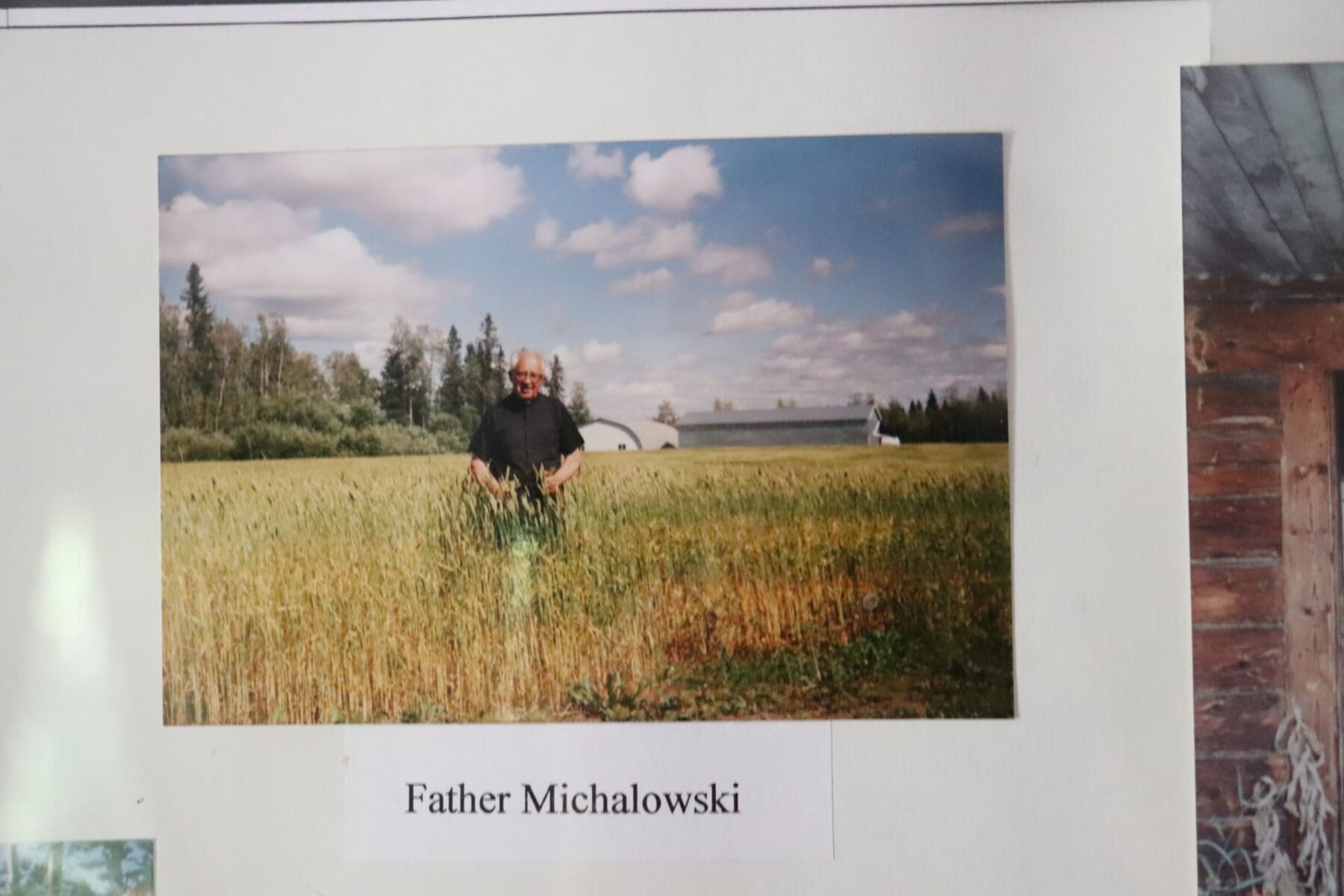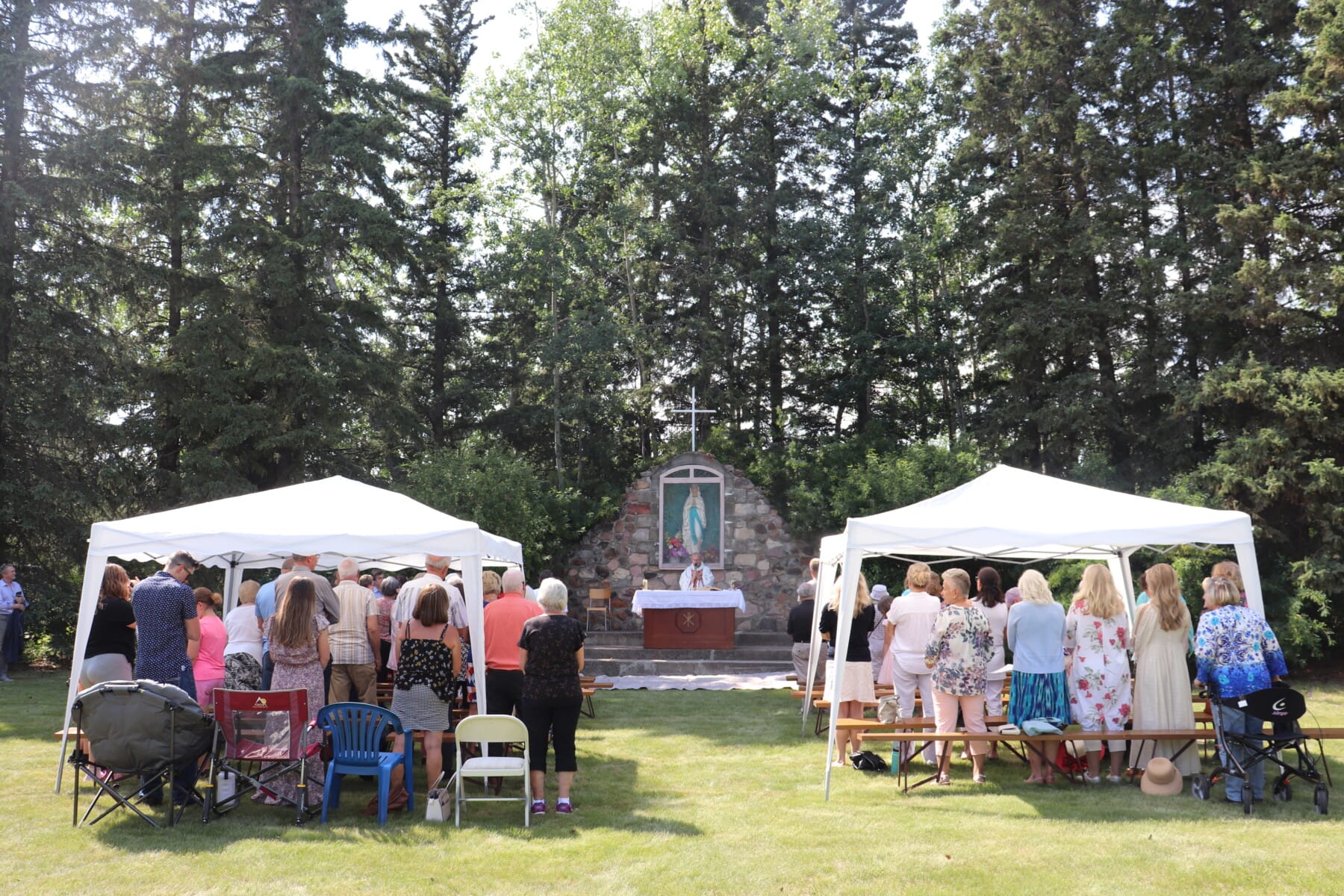
Honouring our roots
Polish Catholics of the province come together for annual Mass in Webster
An annual Mass that honours some of the religious and ethnic roots of the Peace Country has returned with a warm welcome this summer.
For the first time since the pandemic, Polish Catholics from across the archdiocese were able to come together at the grotto grounds in Webster – both to celebrate Mass and to celebrate the legacy of the Polish farmers who settled in the area more than a century ago.
The Polish Mass, along with a dinner in the Webster Community Hall afterward, was held on Saturday, June 24th, with more than 70 people in attendance from communities across the archdiocese, Edmonton, Calgary and even Vancouver.
While the community of Webster has not had its own parish church in many decades, this annual Mass has become a tradition for Polish Catholics of the Peace Country for more than 75 years.
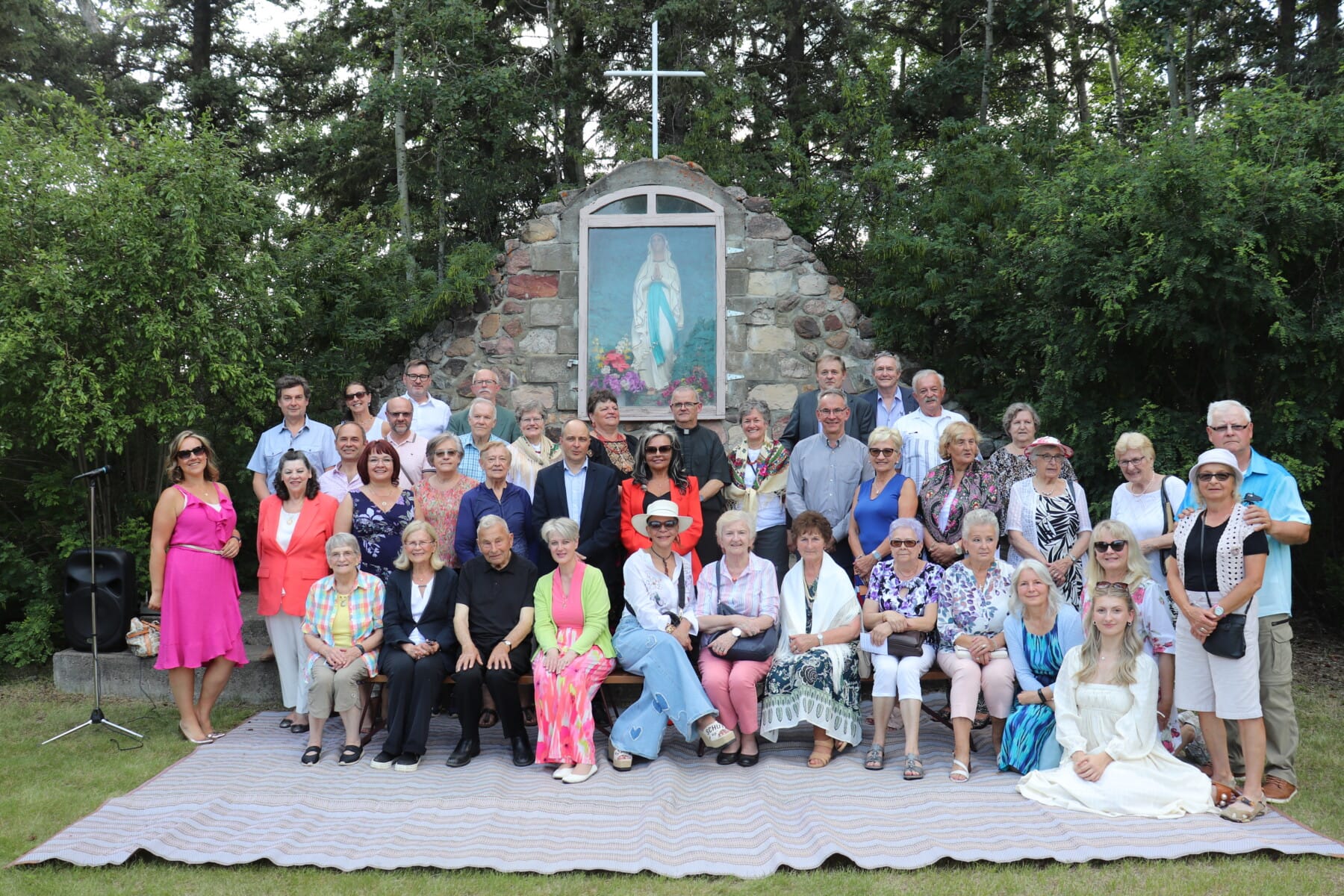
Jagoda Wilk, president of the Polish Canadian Society of the Peace Country for the past 12 years, says the central purpose of this tradition is to honour those Polish pioneers that came to northern Alberta in the early 1900s, at a time when the region was scarcely populated and largely uncharted terrain. It demanded a difficult and labourious life, with little resources and in often the harshest of climates, but because of their sacrifice the descendants of these families now continue to thrive in the Peace Country and across Canada.
“At the beginning of the 20th century there were about fifty Polish families in this area,” Jagoda said of Webster. “Because they had multiple children at that time – 6-8 children was common to each family -they created a pretty large-sized village. They built a Polish church, a Polish school, and many Polish businesses here.
“The people were farmers; but their children often went to university and did not come back to continue the farms as their parents got older, so slowly the community faded. The church burnt down many years ago and was never rebuilt because there was not enough people here to keep the parish going. But they built this grotto, and in memory of the people who came here to build homes on these lands, we come here once a year just to honour them, to be thankful for them for building a legacy here.”
Because the Polish community of the province often keep in touch through various cultural societies and heritage groups, Wilk says it is common that many Polish persons from across Alberta make their way north to attend this yearly Mass.
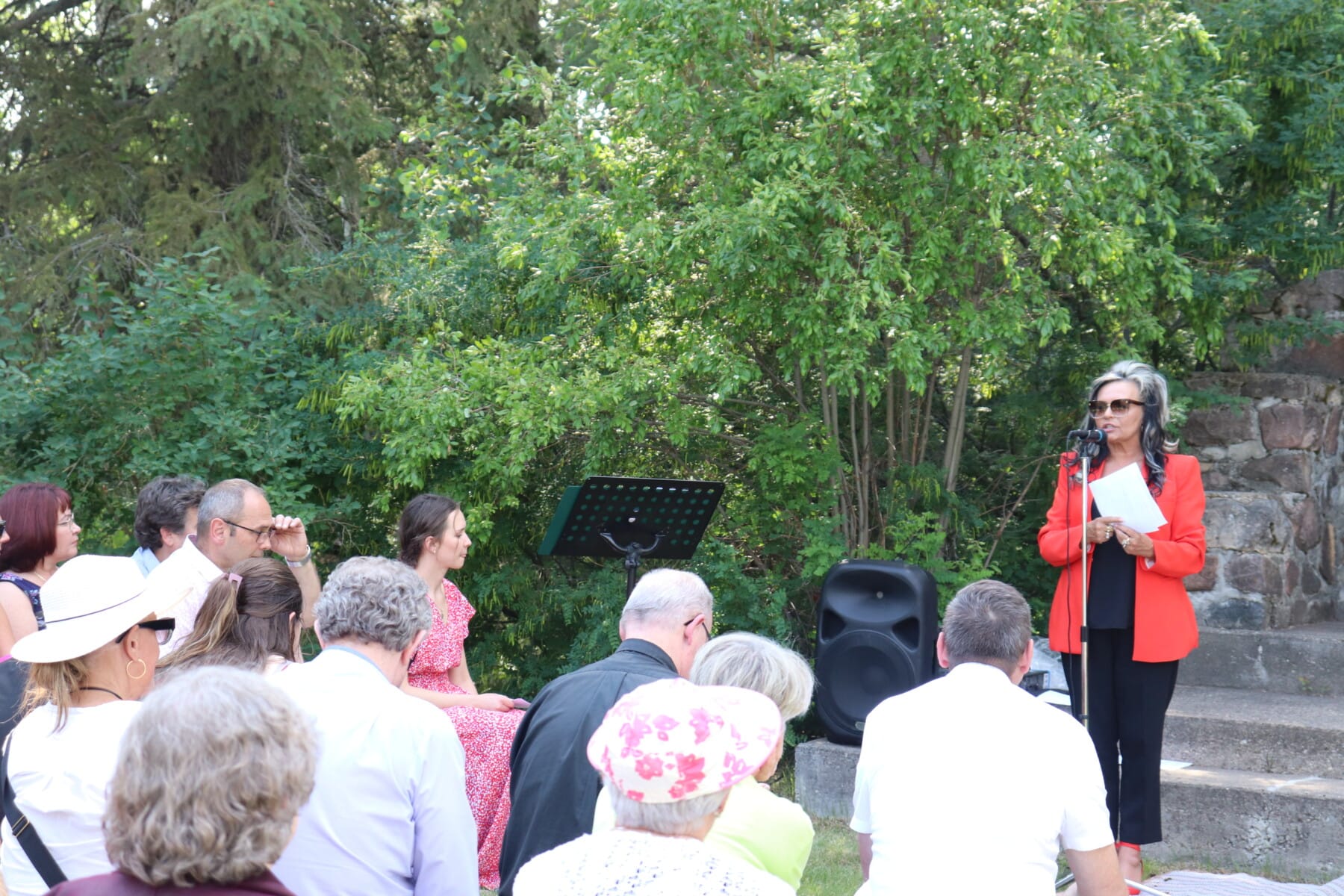
Several special guests attended this year, including the celebrant, Fr. Leon Kerr, of the Edmonton Archdiocese, who travelled 600 kilometres to be with the community and to celebrate Mass in his native tongue. The Polish priest also served as a pastor in the archdiocese for many years. In fact, when he was pastor in Sexsmith, he would offer a Polish Mass there every month.
Walter Paszkowski, former MLA, government minister and mayor of Sexsmith, makes sure to attend this Mass each year it is held. He himself has intimate ties to Webster, as his parents originally settled there during the first year they migrated to Canada. In 1931, they moved and established a farm in Sexsmith. He continues to farm in the Sexsmith area today, and knew many of the Polish priests that served Sexsmith and Webster over the years.
“My dad was given a land script after his military service in Poland. But there was a border dispute at the time between Ukraine and Poland and there was a lot of blood being shed, so my parents decided they would come to Canada,” he said. “It’s hard to believe the work that went into this area, these pioneers coming here and building a community from the ground up. At one time, I’d say this area was at least 80% Polish.”
The legacy of those early pioneers to build a new life in the rugged cold and isolation of northern Alberta is one more testament to the persevering spirit of the Polish people, says Paszkowski. The opportunity to experience this annual tradition in Webster always brings Paszkowski back to his youth, and gives him a chance to honour his family roots.
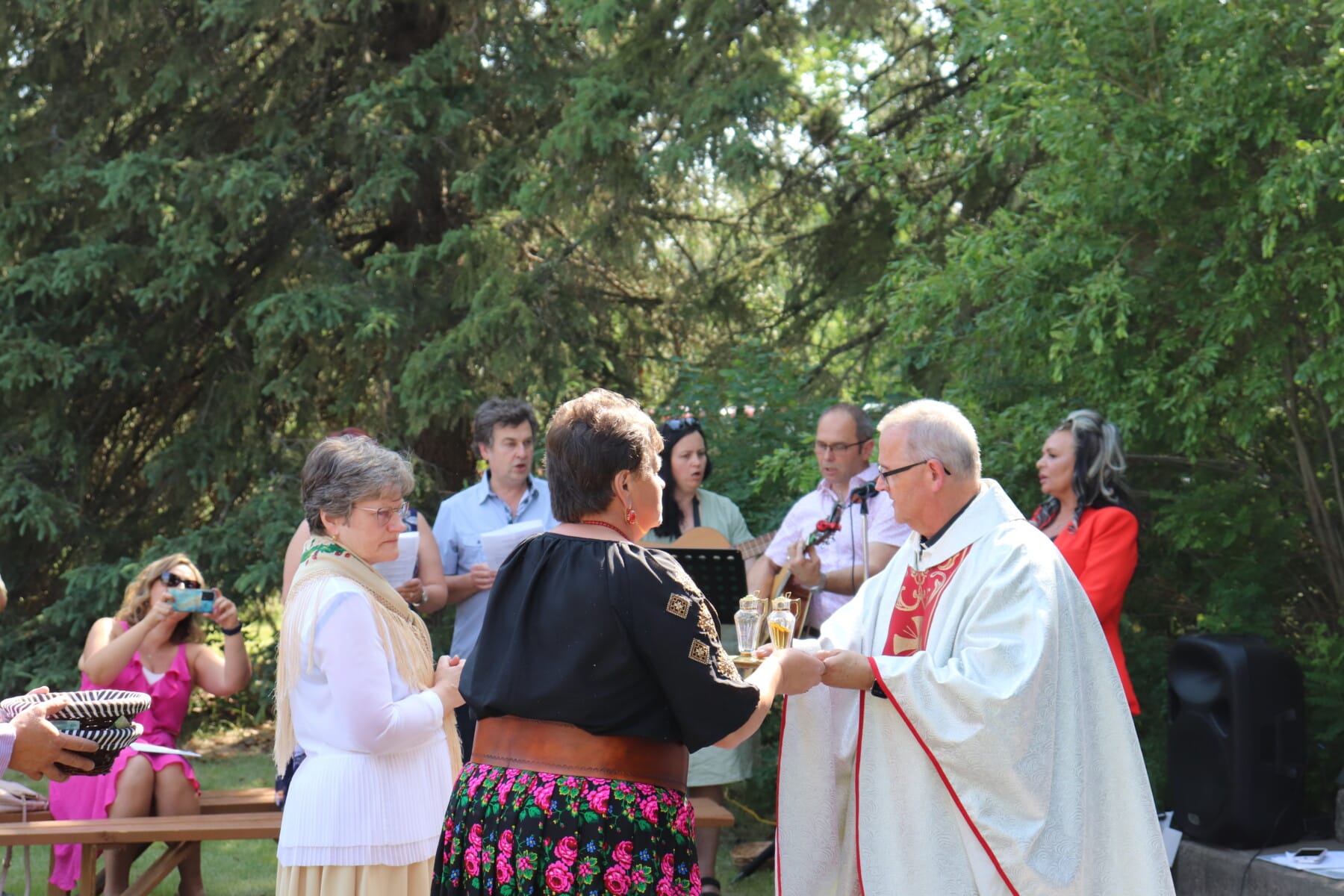
“It’s a wonderful opportunity to remind you of who you are and where you came from. It’s a historic reminder as well as a religious reminder,” he said. “I thank the organizers for all the work they put in to ensure this event goes ahead. We have to thank them for reminding us of our history and our background.”
That sense of holding to one’s roots was a common sentiment amongst attendees. John Szumlas, who attended as Honorary Consul of the Republic of Poland in Edmonton, reminded the young people of the importance of honouring their Polish roots and language.
“What’s important is your roots and your passion that flows from your roots,” Szumlas said. “It’s really important that you understand not only the culture, the traditions, but the language of your roots. For as your parents age and go on to a better life in heaven, you’re going to lose that. You need to take the time to learn about your roots, traditions and cultivate a love for your homeland Poland.”
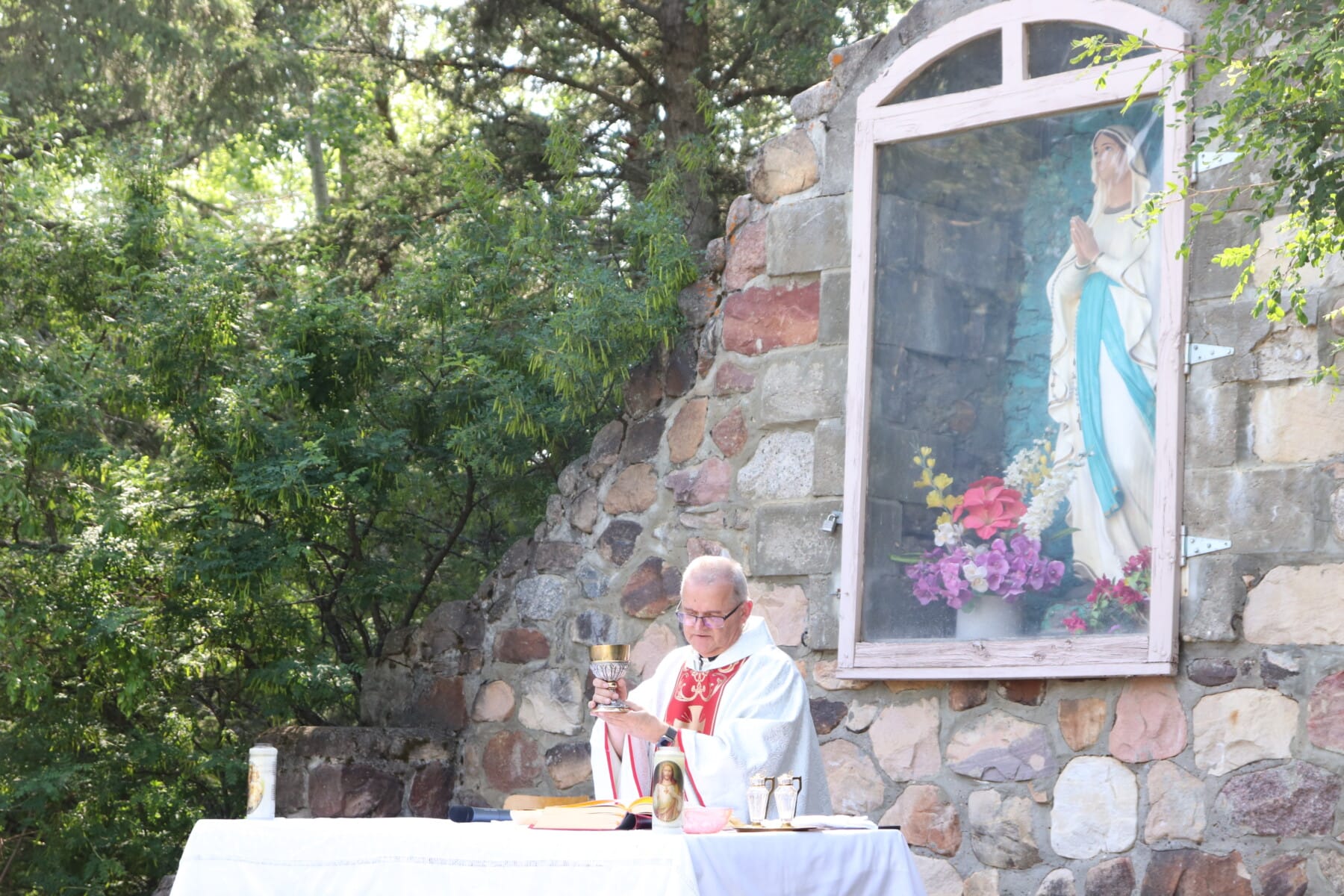
According to the historical book ‘In the Footsteps of Polish Settlers in Western Canada’, 42 families settled in the Webster area between 1926 and 1930 alone, making it at that time one of the largest Polish settlements in northern Alberta.
Construction began on the Sacred Heart Church in Webster in 1930, though its interior construction was only completed with the arrival of the first resident priest – Fr. Joachim Michawlowski, OMI – in 1938. For the first few months of the priest’s time there, he lived in the church’s sacristy, with only a small box heater to keep warm.
Fr. Michawlowski was a strong proponent of Polish identity, and he encouraged his parishioners to hold to their traditions as they resettled in the New World. He taught catechism classes and was involved in various efforts to carry on Polish customs and traditions through the parish.
This is only an excerpt. Read the full story in the July-August 2023 edition of Northern Light
